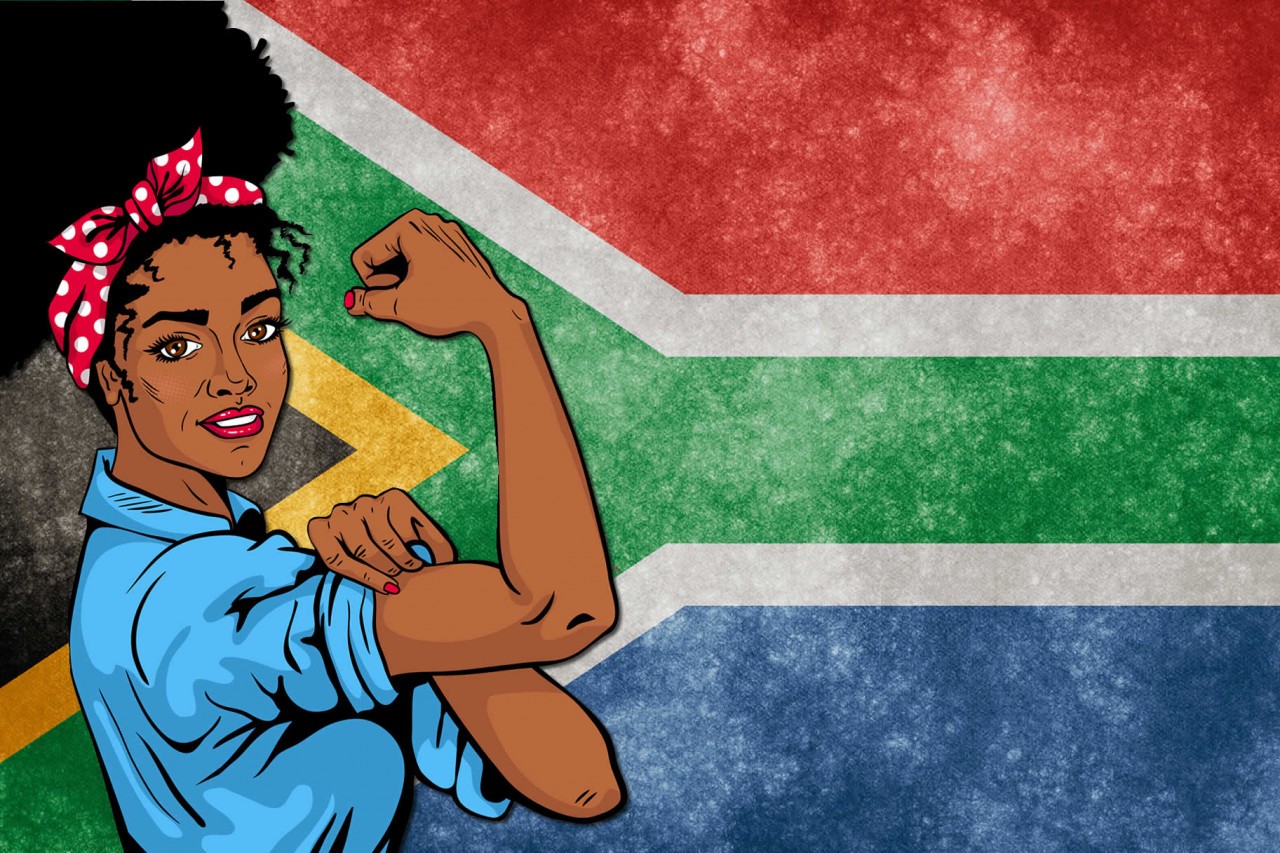Top 10 Richest African Countries by Nominal GDP
| Table of Contents |
Home to over 1.3 billion people, Africa is the world’s second-largest continent, celebrated for its rich cultural heritage and abundant natural resources. Despite facing various social and economic challenges, many African nations are achieving impressive economic growth and development.
Gross Domestic Product (GDP) is one of the most widely used indicators to gauge a country's economic performance, representing the total monetary value of all goods and services produced within a year.
In this article, we explore the wealthiest countries in Africa by analyzing their GDP figures. We’ll dive into the factors driving economic success in these top 10 nations. While GDP is just one lens through which to view prosperity, it offers valuable insights into Africa’s evolving economic landscape.
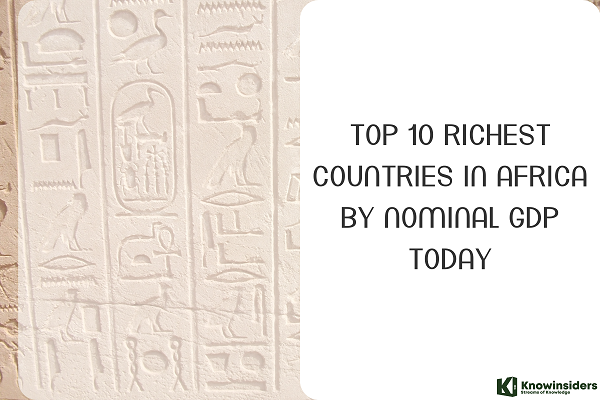 |
| Top 10 Richest Countries in Africa by Nominal GDP Today |
Top 10 Richest Countries With the Biggest Economy In Africa Today
1. Egypt
Egypt is currently the biggest economic force on the African continent, according to GDP (PPP) statistics. Aiming to increase development and attract foreign investment, the country's open economy and reform program, which was put into place between 2006 and 2008, allowed it to register high annual growth rates of 7% and catapult it into the top tier of Africa's richest nations.
The most recent OECD report predicts that Egypt's economic growth will quicken. It is anticipated that inflation will decline as the effects of currency devaluation lessen, which will support the recovery of household consumption. Business investment will pick up speed once uncertainty is eliminated and financial conditions normalize. Because exporters are supported, exports from the country may even rise.
Learn more: Top 10 Most Worshiped Gods and Goddesses of Ancient Egy
2. Nigeria
Nigeria is among the richest countries in Africa because it is the continent's biggest exporter of crude oil. The primary driver of that high GDP is oil exports. Nigeria is well-known for its niobium, limestone, and natural gas. Regretfully, following the spread of COVID-19, Nigeria and other African nations were unable to withstand the severe decline in the global market. The contentious alliances between Saudi Arabia, the United States, and Russia also have a big effect on South Africa's GDP. It appears that effective administration can maintain the nation's top spot.
Nigeria is endowed with an abundance of natural resources, such as minerals, gemstones, and oil (5.6 percent of GDP), but the services sector accounts for 52% of the country's GDP.
3. South Africa
With a GDP of $380 billion and a purchasing power parity of $868.58 billion, South Africa is the most technologically advanced and developed country in Africa. A two-speed economy means that one part of the economy is on par with developed countries while another part needs basic infrastructure right away. South Africa is one of the richest countries in Africa when it comes to natural resources. It is the richest country in Southern Africa and makes up 25% of the continent's GDP. It has also made a big difference in the region's progress.
69% of South Africa's GDP comes from the tertiary sector, which includes trade, transportation, and services, as well as other post-industrial activities. Some examples of primary economic activities are farming and mining. Manufacturing is an example of a secondary economic activity.
 Top 10 Largest Shopping Centers in South Africa for Foreigners Top 10 Largest Shopping Centers in South Africa for Foreigners |
4. Algeria
Algeria has achieved significant economic growth despite recurring political instability, primarily due to its abundant natural resources, such as natural gas and oil. The hydrocarbon industry has experienced a deceleration as a result of political volatility and pervasive corruption. Despite these challenges, the country continues to uphold its strong GDP.
In light of the finite nature of fossil fuels, the country is currently seeking to expand its energy sources, particularly in the realm of renewable energy, by capitalizing on its advantageous solar power capabilities.
5. Ethiopia
Ethiopia's economy has grown at an average rate of 6.0% per year over the past few years. The main thing that caused this growth was the accumulation of large amounts of capital, especially through investments in public infrastructure. Other things also played a role. It has one of the world's fastest-growing economies and is home to 123 million people, making it the second most populous country in Africa.
Political unrest, food shortages, and droughts have all had an effect on the economy and farming in the country as a whole. Too much reliance on the energy sector, especially oil, has made these sectors even worse off. In many ways, conflicts also threaten the progress the country has made in social and economic development.
6. Morocco
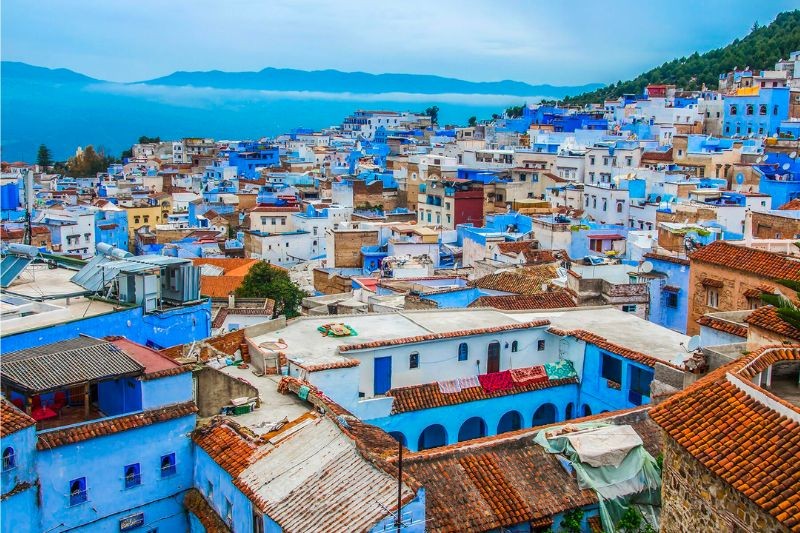 |
| Morocco |
Morocco is an exquisite country situated in North Africa. The GDP growth rate of Morocco experienced a period of stabilization at the beginning of the 21st century, after enduring a period of difficulty in the 1990s. The annual growth rate of Morocco's GDP for 2023 is estimated to be 2.482 percent, resulting in a total GDP of USD 147 billion.
This country engages in the active exportation of a variety of goods and services and holds the third position globally in terms of phosphorus production. The primary exports from Morocco consist of inorganic chemicals, crude minerals, petroleum products, and electric components. Statistical data highlights the significant contribution of these exports to the nation's GDP.
7. Kenya
Kenya gained independence from the British Empire in 1963. With a GDP of $112.74 billion in 2024, it is considered the central hub for commerce, finance, industry, and logistics in East Africa. Despite being the most industrialized nation in the region, the economy remains heavily reliant on agriculture.
In addition to a rapidly growing tech sector, Kenya also possesses reserves of rare earth minerals, gold, and titanium. The youthfulness of the population will exert a substantial impact on the nation's economy.
8. Angola
Angola is a nation in Central Africa with a varied topography. To balance its economy, Angola has been strengthening its political and structural reforms. The country has abundant resources of gold, granite, copper, feldspar, iron ore, phosphates, diamonds, petroleum, oil, and uranium. Angola's GDP is $93.79 billion, or $7,080 per person, making it the eighth largest economy in Africa according to GDP.
Between 2002 and 2016, economic growth accelerated despite a four-decade period of independence and civil wars, with average growth of 9% in the four years preceding 2008. Between 2000 and 2010, Angola's GDP grew by 11.1% yearly on average, which boosted the country's non-oil industries and established it as one of the richest countries in Central Africa.
9. Tanzania
Kenya had a GDP of $84 billion in 2024. It is becoming more industrialized right now, with a lot of its growth coming from manufacturing, transportation, infrastructure, mining, renewable energy, and agriculture. The country has a lot of minerals and metals, like copper and gold, as well as graphite and phosphate.
Some of the most famous natural sights in Africa are in Tanzania, like Mount Kilimanjaro and national parks, though the pandemic hurt the tourism industry.
10. Ivory Coast (Côte d'Ivoire)
In 2024, the Ivory Coast, also known as Côte d'Ivoire, had a GDP of about $80 billion. It has become one of the most stable economies in West Africa since it became independent in 1960. Since farming is so important, many businesses focus on processing things like rubber, cashews, cocoa, cotton, and palm oil. Cocoa is one of the most important products in the country and is often the best supplier in the world. Côte d'Ivoire's economy is expected to do well because of how well it handled the COVID-19 pandemic.
Africa's Countries With the Biggest Economy - Full List
| Rank | Country | GDP 2024 (in billion U.S. dollars) | Gross Average Monthly Wages (USD, at current exchange rates) | Life expectancy at birth, total (years) |
|---|---|---|---|---|
| 1 | Egypt | 398.39 | 222 | 70.22 |
| 2 | Nigeria | 390 | 166 | 52.68 |
| 3 | South Africa | 380.9 | 1362 | 62.34 |
| 4 | Algeria | 224.1 | 249 | 76.38 |
| 5 | Ethiopia | 155.8 | 78 | 64.98 |
| 6 | Morocco | 147.34 | 1657 | 74.04 |
| 7 | Kenya | 112.74 | 416 | 61.43 |
| 8 | Angola | 93.79 | 27 | 61.64 |
| 9 | Tanzania | 84.03 | 75 | 66.2 |
| 10 | Ivory Coast (Côte d'Ivoire) | 79.43 | 97 | 58.6 |
| 11 | Ghana | 76.62 | 244 | 63.8 |
| 12 | DR Congo | 67.51 | 81 | 59.19 |
| 13 | Uganda | 52.39 | 74 | 62.71 |
| 14 | Tunisia | 51.27 | 277 | 73.77 |
| 15 | Cameroon | 49.26 | 86 | 60.33 |
| 16 | Libya | 40.19 | 68 | 71.91 |
| 17 | Zimbabwe | 32.42 | 62 | 59.25 |
| 18 | Senegal | 31.14 | 49 | 67.09 |
| 19 | Zambia | 29.53 | 75 | 61.22 |
| 20 | Sudan | 25.56 | 76 | 65.27 |
| 21 | Guinea | 23.2 | 430 | 58.89 |
| 22 | Mozambique | 21.93 | 67 | 59.33 |
| 23 | Mali | 21.3 | 34 | 58.94 |
| 24 | Burkina Faso | 20.78 | 71 | 59.27 |
| 25 | Botswana | 20.75 | 416 | 61.14 |
| 26 | Benin | 19.94 | 110 | 79.28 |
| 27 | Gabon | 19.31 | 65 | 65.82 |
| 28 | Niger | 17.07 | 47 | 61.58 |
| 29 | Madagascar | 15.76 | 47 | 64.49 |
| 30 | Mauritius | 14.81 | 486 | 73.68 |
| 31 | Congo | 14.4 | 57 | 63.52 |
| 32 | Rwanda | 13.92 | 78 | 66.07 |
| 33 | Malawi | 13.17 | 31 | 62.9 |
| 34 | Namibia | 12.64 | 58 | 59.27 |
| 35 | Chad | 12.59 | 67 | 52.53 |
| 36 | Somalia | 11.51 | 68 | 55.28 |
| 37 | Mauritania | 10.35 | 41 | 64.36 |
| 38 | Equatorial Guinea | 10.04 | 75 | 60.59 |
| 39 | Togo | 9.11 | 65 | 61.62 |
| 40 | South Sudan | 6.26 | 71 | 54.98 |
| 41 | Eswatini | 4.64 | 65 | 57.07 |
| 42 | Liberia | 4.34 | 47 | 60.75 |
| 43 | Djibouti | 3.87 | 142 | 62.31 |
| 44 | Sierra Leone | 3.51 | 65 | 60.06 |
| 45 | Burundi | 3.19 | 316 | 61.66 |
| 46 | Central African Republic | 2.76 | 76 | 53.9 |
| 47 | Cape Verde | 2.59 | 125 | 74.05 |
| 48 | Gambia | 2.38 | 74 | 62.08 |
| 49 | Lesotho | 2.37 | 24 | 53.06 |
| 50 | Eritrea | 2.25 | 62 | 66.54 |
| 51 | Seychelles | 2.08 | 108 | 73.4 |
| 52 | Guinea-Bissau | 1.99 | 68 | 59.65 |
| 53 | Comoros | 1.36 | 55 | 63.42 |
Roles of Natural Resources and Wealth DistributionsA significant factor contributing to the wealth of many African nations is their abundant natural resources. The presence of abundant mineral, oil, and gas reserves has driven economic growth in countries such as South Africa, Angola, and Nigeria. The phenomenon known as the "resource curse" exemplifies the economic challenges that can arise from an excessive dependence on natural resources. This occurs when countries with abundant resources struggle to achieve economic growth due to factors such as corruption, inadequate governance, and insufficient investment in alternative economic sectors. When discussing the wealthiest countries in Africa, it is crucial to consider the distribution of wealth. A significant number of African nations exhibit elevated levels of income inequality, indicating that the generated wealth is not consistently distributed among the general population. By tackling wealth distribution problems and fostering inclusive growth, we can create a society that is both more stable and prosperous. |
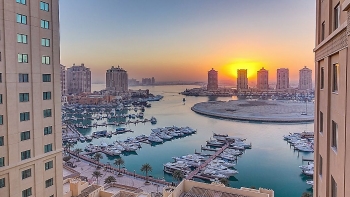 Top 10 Wealthiest Countries in the World by Net Worth Top 10 Wealthiest Countries in the World by Net Worth Discover the comprehensive compilation of the top 10 wealthiest nations in the world based on their net worth: China has overtaken the United States as ... |
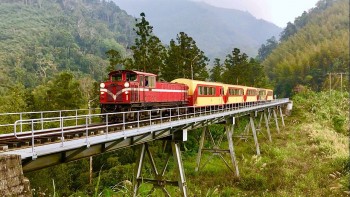 Top 10 Most Beautiful Asian Countries To Travel By Train Top 10 Most Beautiful Asian Countries To Travel By Train The greatest way to experience the splendor of Asia is by train. View the Top 10 Most Gorgeous Countries in Asia for Train Travel, along ... |
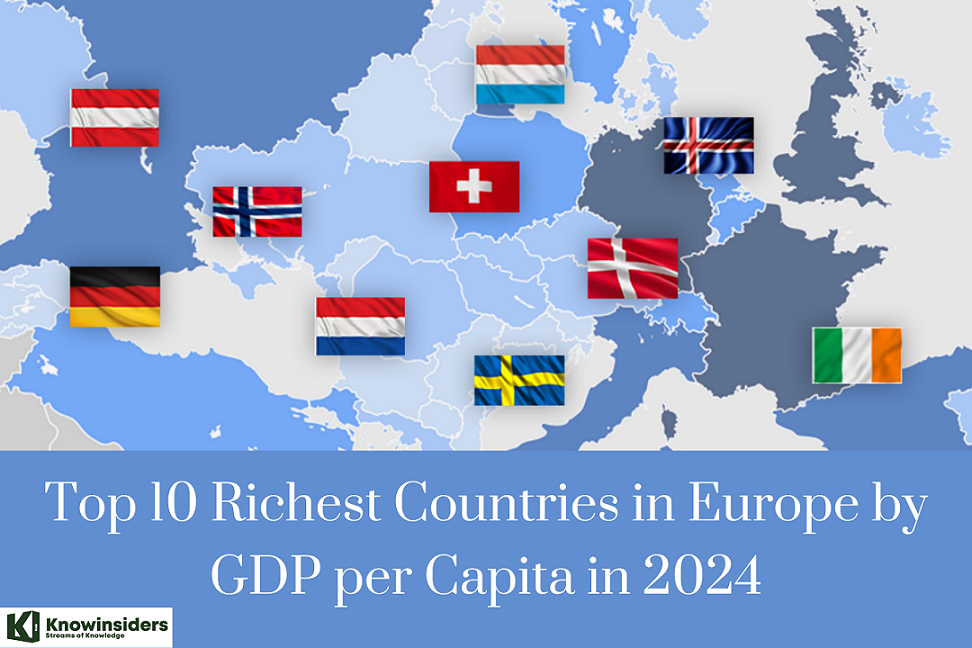 Top 10 Richest Countries in Europe by GDP Per Capita Today Top 10 Richest Countries in Europe by GDP Per Capita Today It should come as no surprise that Europe is home to some of the richest nations on the planet given its more than 50 nations ... |


